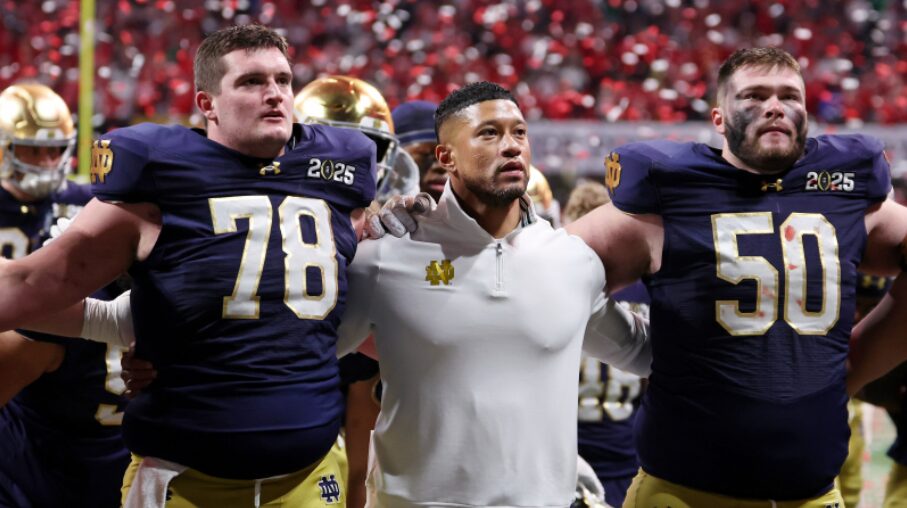“Major Insights”-Notre Dame Coaches And Players Under Fire For Postgame Locker Room Behavior
It’s difficult to truly grasp the pain of losing in the college football national championship game unless you’ve experienced it yourself. This season, that pain was heightened by the new 12-team playoff format, resulting in the longest season in the sport’s history. Following the loss, the Notre Dame Fighting Irish players and coaches faced criticism on Monday night for their reported reactions when addressing the media.
USA Today columnist Dan Wolken tweeted about “strange scenes from the Notre Dame locker room,” mentioning players shouting at reporters and coaches advising against certain questions.
On one hand, it’s understandable for players to be emotional; they’re young and just endured a tough loss in a championship game after a long season. However, college football has evolved into a near-professional sport according to the NLRB, so there is an expectation to handle the situation with some professionalism and account for the aftermath.
USA Today Columnist Responds To Notre Dame’s Postgame Locker Room Behavior
A fan questioned Wolken about whether he believes he is entitled to answers from the players. He responded by saying that if the locker room is accessible to the media, then reporters shouldn’t face hostility for asking questions.
“I believe that if the locker room is open, as it is for the CFP, reporters should feel free to enter and ask questions respectfully without being cursed at. If a player chooses not to speak, that’s perfectly fine,” Wolken stated.
This creates a divide in opinions. On one hand, Wolken has a valid point; media members shouldn’t be mistreated just for being present after a tough loss, as it’s a reality athletes must learn to accept. Conversely, some believe it’s unfair for media to have immediate access to players right after games.
It seems that most Notre Dame fans lean towards the latter viewpoint. However, if we’re going to pay college athletes and refer to them as professionals, it inevitably means they have to perform tasks they might not always enjoy.



No Comment! Be the first one.